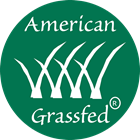If it wasn’t so misleading and misguided, we would be amused by the recent release of Impossible Foods’ 2019 Impact Report—an attempt to reshape a corporate narrative for the good of the corporation, and for little else. On behalf of American Grassfed Association (AGA), a national organization that provides certification, market support, education, research, and advocacy on behalf of grassfed ruminants and dairy and pastured pork producers and supporters, we offer this response.
Impossible Foods makes many easily refutable claims. What Impossible Foods doesn’t mention: It, itself, is not sufficient to meet growing demands for meat and dairy. The Impossible approach to food production does not produce meat. We also might argue that it should not claim to be producing real food at all. The 2019 Impact Report states that “Global consumers will never decide to voluntarily, radically, reduce their meat intake – the inherent flaw in every grass-fed, holistic, regenerative proposition.” The corporation fails to see that this, then, would also stand as an inherent flaw in its own business model—a model that shows no intention of producing real meat for a growing global consumption of the real thing.
What we have learned as regenerative farmers and ranchers is that we must work with nature, rather than against it, when growing food. After decades of industrial agriculture interests touting efficiency, scale, and “cheap food” as the holy grail goals of food production, we now are faced with the stark reality: The industrialized food system may be able to feed us, but it certainly does not feed us well. And most often it is not actually feeding us with food.
Experience, science, medical research, and data all have shown us that for true health, we must eat real food. The reason that instances of cancer, infertility, and diabetes, for instance, continue to soar—for one—is because human consumption of fake, heavily processed, herbicide-laden food is at an unprecedented scale. As for Impossible Foods? As long as the corporation can make an extra buck off of consumers, it appears they’re hoping consumers will eat more of it.
Impossible Foods also must be hoping consumers will overlook the large body of evidence documenting the positive impacts of properly managed livestock, as noted in the Savory Institute rebuttal to the 2019 Impact Report. We suspect Impossible Foods’ officials also felt it convenient to leave out a mention of the third-party lifecycle analysis that was recently released from studies conducted at White Oak Pastures in southern Georgia, which the Savory rebuttal also noted.
Analysis results showed White Oak produced a net carbon sink—in spite of all greenhouse gases coming in and out of the farm operation. The study was performed by Quantis, the same third-party firm that conducted Impossible Burger’s latest LCA and which showed Impossible’s product to be a net carbon emitter. We reference this study because it uses exactly the same methodology and third party impartial life cycle assessment that Impossible used and shows a result that speaks in direct contrast to Impossible’s claims.
Regenerative agriculture, Impossible Foods claims, is not scalable. Farming the way AGA President Will Harris of White Oak Pastures farms is not highly scalable, indeed, but it is extremely replicable—in every county, in every town, throughout this country. We at AGA believe communities should be feeding communities—with real food, grown in concert with nature, with an eye toward the health of consumers, the welfare of animals, the stewardship of land, and the future of our world. If consumers have to eat less meat? We’re fine with that, as long as what they are eating is clean, real protein, raised in harmony with—and to the benefit of—nature.
In the end, Impossible Foods’ 2019 Impact Report does what it was intended to do: To deflect negative attention from its GMO soy-based products in order to write a new narrative that sells more impossible-to-defend Impossible “burgers”—an endeavor that does nothing but benefit the bottom line of an industrial food corporation.
Sherri Dugger
Policy & Communications Consultant
American Grassfed Association
c: 317.371.2970 | e: sherri@americangrassfed.org
